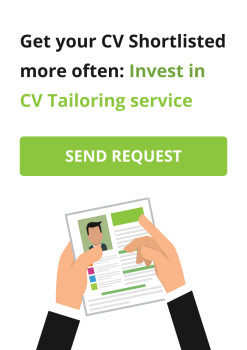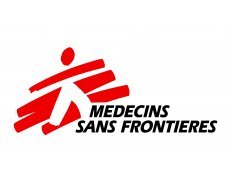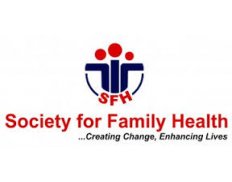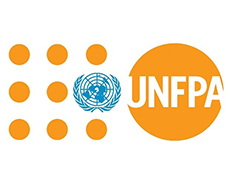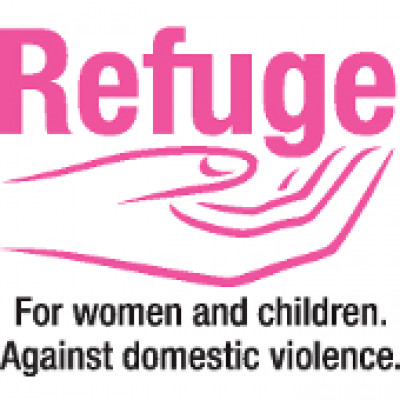Details
Description
Background
UN Women, grounded in the vision of equality enshrined in the Charter of the United Nations, works for the elimination of discrimination against women and girls; the empowerment of women; and the achievement of equality between women and men as partners and beneficiaries of development, human rights, humanitarian action, and peace and security. The UN Women Nigeria Country Office (CO) implements UN Women’s three-pronged mandate on coordination; normative support to governments and; program implementation alongside UN Women’s current Strategic Note (2023 – 2026). UN Women’s program interventions span women’s political participation (WPP); women, peace and security and humanitarian action (WPSHA); women’s economic empowerment (WEE), and ending violence against women and girls (EVAWG).
The Traditional and Cultural Leaders for Ending GBV by Advancing Advocacy, Policy and Social Norms Change in Nigeria and West Africa (LEAP) project is a three-year-long (2023 – 2026) initiative of the UN Women and Ford Foundation under EVAWG. UN Women through LEAP supports and enhances partnerships and skills of regional traditional and religious leaders including the Council of Traditional Leaders in Africa (COTLA) – a powerful network established in 2018 with support from UN Women, and other high-level actors in preventing and responding to sexual and gender-based violence (SGBV), shifting harmful social norms and practices, religious misconceptions, and promotion of sexual and reproductive health rights (SRHR) in West Africa. The program leverages on existing linkages, builds and strengthens partnerships of traditional and religious leaders with the African Union Commission (AUC) and Economic Community of West African States (ECOWAS) directorates, and civil society organizations (CSOs) on ongoing advocacy initiatives and campaigns toward ending child marriage, female genital mutilation (FGM) and other harmful practices.
In Africa, Sexual and Gender-Based Violence is in most instances perpetuated under the pretext of culture and tradition. Harmful gender norms and harmful practices (HP) entrenched in traditional practices and religious misconceptions continue to be used to justify and fuel various manifestations of Violence Against Women and Girls (VAWG). Traditional and religious leaders are influential agents at the community level. Traditional leaders preside over clans, villages, communities, and town/government (in some instances such as Kenya). In some contexts, they perform the twin role of traditional and religious governance. They ensure legislation and implementation of the laws as per their custom and tradition. Traditional leaders preside over traditional ceremonies where they often re-echo tradition and culture such as marriageable age mostly for girls, to their subjects that include traditional initiators, families as well as individual men, women, girls, and boys. Religious leaders are usually topmost in the sphere of influence of persons and preside over large congregations. Through UN Women’s EVAWG interventions, Traditional Leaders have championed the abolishment of age-long cultural practices of money-wife in the Obanliku community of Cross River State and FGM in parts of Ebonyi State as well as mobilizing male and youth networks to prevent and transform restrictive gender norms. The Sultan of Sokoto boldly challenged the Government of the Northern region to take decisive actions against parents who refuse to send their children to school – girls in Northern Nigeria are disproportionately affected by low literacy rates and the high prevalence of child marriage.
Duties and Responsibilities
Scope of Work:
UN Women seeks a Consultant/Consultancy Group to Review the Commitments of Traditional and Cultural Leaders on Ending Violence Against Women and Girls (EVAWG), Harmful Practices, and promoting Sexual and Reproductive Health in Nigeria to ensure accountability for agreed actions toward prevention and response to sexual and gender-based violence. The commitments and findings from the review process will support the development stage of a Regional Accountability Framework for Traditional Leaders on EVAWG, HP, SRHR, and intersections with WEE, WPE, and WPS. The selected Consultant/Consultancy Group will work closely with the consultant(s) to develop the Regional Accountability Framework.
Deliverable Schedule
Deliverable |
Timeframe |
Deliverable 1: Conduct interviews with identified traditional and cultural leaders and other relevant stakeholders |
25 September 2023 |
Deliverable 2: (i) Submit final review document with commitments from Traditional and Cultural Leaders (ii) Consultation meeting (s) with the process of developing a Regional Accountability Framework and review of draft Regional Accountability Framework for Traditional Leaders |
10 October 2023 |
Deliverable 3: Presentation and Facilitation of Review of Commitments at Annual Meeting of Traditional, Religious, and Cultural Leaders (Annual Africa GBV Summit) |
November 2023 |
Deliverable 4: Post-Summit Report outlining advancement toward initial commitments, and recording of proposed actions and commitments by Traditional and Religious Leaders for 2023 |
November 2023 |
Competencies
Core Values / Guiding Principles:
- Integrity: Demonstrating consistency in upholding and promoting the values of UN Women in actions and decisions, in line with the UN Code of Conduct.
- Cultural Sensitivity/Valuing diversity: Demonstrating an appreciation of the organization's multicultural nature and its staff's diversity; Demonstrating an international outlook, appreciating differences in values, and learning from cultural diversity.
- Professionalism: Demonstrate professional competence and expert knowledge of the pertinent substantive work areas.
Core Competencies
- Solid understanding of GBV guiding principles.
- Flexible work attitude: ability to work productively in a team environment and independently, and to handle requests or issues as they arise.
- Excellent interpersonal and communication skills: the ability to liaise with people successfully and effectively in a wide range of functions in a multi-cultural environment.
Required Skills and Experience
Required Skills and Experience
Education and Certification
- Advanced Degree in social science, gender, health, international relations and related fields
Experience
- Minimum 15 years of relevant experience and involvement in ending violence against women (EVAW) evaluations.
- Experience in conducting evaluations within the United Nations system will be considered an asset.
- Minimum 5 years of proven experience working with Women CSOs, and grassroots organizations.
- Minimum 5 years of experience/knowledge of gender equality and GBV programming at the country or international level is desired.
- Demonstrate facilitation and communications skills, experience in participatory approaches and ability to negotiate amongst a wide range of stakeholders.
- Experience in the usage of computers and office software packages (MS Word, Excel, etc.) and spreadsheet and database packages, and experience in handling web-based management systems.
Language Requirements
- Fluency in English required
- Knowledge of a 2nd UN official working language is an advantage.
Notes:
In July 2010, the United Nations General Assembly created UN Women, the United Nations Entity for Gender Equality, and the Empowerment of Women. The creation of UN Women came about as part of the UN reform agenda, bringing together resources and mandates for greater impact. It merges and builds on the important work of four previously distinct parts of the UN system (DAW, OSAGI, INSTRAW, and UNIFEM), which focused exclusively on gender equality and women's empowerment.
Diversity and inclusion:
At UN Women, we are committed to creating a diverse and inclusive environment of mutual respect. UN Women recruits, employs, trains, compensates, and promotes regardless of race, religion, color, sex, gender identity, sexual orientation, age, ability, national origin, or any other basis covered by appropriate law. All employment is decided on the basis of qualifications, competence, integrity, and organizational need.
If you need any reasonable accommodation to support your participation in the recruitment and selection process, please include this information in your application.
UN Women has a zero-tolerance policy on conduct that is incompatible with the aims and objectives of the United Nations and UN Women, including sexual exploitation and abuse, sexual harassment, abuse of authority, and discrimination. All selected candidates will be expected to adhere to UN Women’s policies and procedures and the standards of conduct expected of UN Women personnel and will therefore undergo rigorous reference and background checks. (Background checks will include the verification of academic credential(s) and employment history. Selected candidates may be required to provide additional information to conduct a background check.)

